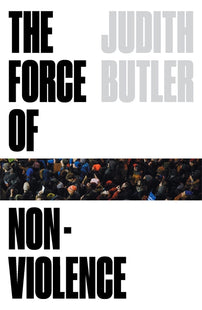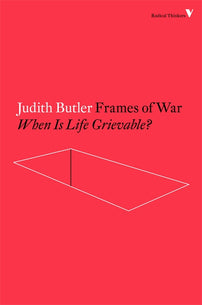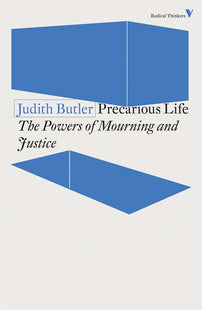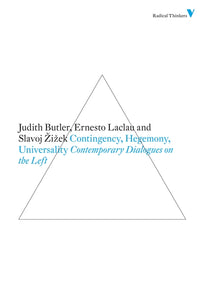Judith Butler bookshelf
All our writing from Judith Butler, including The Force of Nonviolence.

“As a strategy of resistance and protest, nonviolence is often seen as passive and resolutely individual. Butler’s philosophical inquiry argues that it is in fact a shrewd and even aggressive collective political tactic.”
– The New York Times
Judith Butler is an American philosopher and gender theorist whose work has influenced political philosophy, ethics, feminism, queer theory, culture, and the psyche. In their latest book, The Force of Nonviolence, they "make an outsized argument: that our times, or perhaps all times, call for imagining an entirely new way for humans to live together in the world—a world of what Butler calls radical equality.” [New Yorker interview].
Judith Butler’s new book shows how an ethic of nonviolence must be connected to a broader political struggle for social equality. Further, it argues that nonviolence is often misunderstood as a passive practice that emanates from a calm region of the soul, or as an individualist ethical relation to existing forms of power. But, in fact, nonviolence is an ethical position found in the midst of the political field. An aggressive form of nonviolence accepts that hostility is part of our psychic constitution, but values ambivalence as a way of checking the conversion of aggression into violence.
[book-strip index="2" style="buy"]In this urgent response to violence, racism and increasingly aggressive methods of coercion, Judith Butler explores the media’s portrayal of armed conflict, a process integral to how the West prosecutes its wars. In doing so, she calls for a reconceptualization of the left, one united in opposition and resistance to the illegitimate and arbitrary effects of interventionist military action.
[book-strip index="3" style="buy"]In her most impassioned and personal book to date, Judith Butler responds in this profound appraisal of post-9/11 America to the current US policies to wage perpetual war, and calls for a deeper understanding of how mourning and violence might instead inspire solidarity and a quest for global justice.
[book-strip index="4" style="buy"]The Hegelian legacy, Left strategy, and post-structuralism versus Lacanian psychoanalysis.



